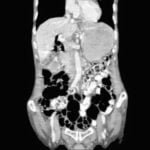When the Nose Bleeds: Causes, Care, and Prevention
A nosebleed can be a sudden and sometimes frightening event. For most people, it is a harmless problem that stops on its own. But in some cases, nosebleeds can be heavy, frequent, or linked to an underlying condition. Doctors call this epistaxis. Understanding why it happens, how to manage it, and when to seek help can make the situation far less stressful.

What Can Cause a Nosebleed?
- Dry air and irritation: The most common reason. Dry climates, central heating, or air conditioning can dry out the nose and cause small blood vessels to break.
- Nose picking or injury: Even gentle scratching or minor bumps can start bleeding.
- Colds and allergies: Inflammation from infection or sneezing can weaken nose vessels.
- Medications: Blood thinners, aspirin, or even nasal sprays (when overused) may increase bleeding risk.
- High blood pressure: Sometimes linked with more severe or repeated nosebleeds.
- Serious causes (rare): Bleeding disorders, nasal growths, or tumours.
How Can You Lower the Risk?
Simple daily habits can reduce the chances of nosebleeds:
- Keep your nose moist: Use saline sprays or apply a thin layer of petroleum jelly inside the nostrils if the air is very dry.
- Humidify your room: Especially in winter or with constant air conditioning.
- Avoid nose picking or blowing too hard.
- Protect your nose: Wear protective gear during sports to avoid trauma.
- Limit irritants: Stay away from cigarette smoke and strong chemical fumes.
- Manage blood pressure: Regular monitoring and treatment help reduce risk.
What To Do During a Nosebleed
- Stay calm and sit upright. This reduces pressure in the nose.
- Lean forward slightly. Do not tilt your head back—this can make blood run into your throat.
- Pinch your nose. Use your thumb and index finger to squeeze the soft part of the nose (just below the bone) for 10–15 minutes without stopping.
- Apply a cold pack. A cold cloth or ice pack on the bridge of the nose may help constrict blood vessels.
- Spit out any blood. Swallowing it may cause nausea.
When to See a Doctor
Seek medical advice if:
- Bleeding is heavy or lasts more than 20 minutes.
- Nosebleeds keep coming back.
- You are on blood-thinning medication.
- You also have dizziness, weakness, or signs of anaemia.
- The bleeding follows a significant injury.
Doctors may use special ointments, cauterisation, or nasal packs if bleeding does not settle with home measures.
Key Message
Most nosebleeds are harmless and stop with simple first-aid steps. But frequent or heavy bleeding can sometimes point to an underlying problem. By knowing how to handle them and when to get help, you can stay safe and worry-free.
Quick Tips: Nosebleeds
- Sit up, lean forward, and pinch your nose for 10–15 minutes.
- Never tilt your head back.
- Use a cold cloth or ice on the nose bridge.
- Seek help if bleeding is heavy, lasts >20 minutes, or keeps coming back.
Quick Tips: Prevention
Monitor blood pressure and take medicines as advised.
Keep the nose moist with saline spray or ointment.
Use a humidifier in dry rooms.
Avoid picking, rubbing, or blowing the nose too hard.
Protect your nose during sports.
Join the mailing list!
Get the latest articles delivered right to your inbox!

